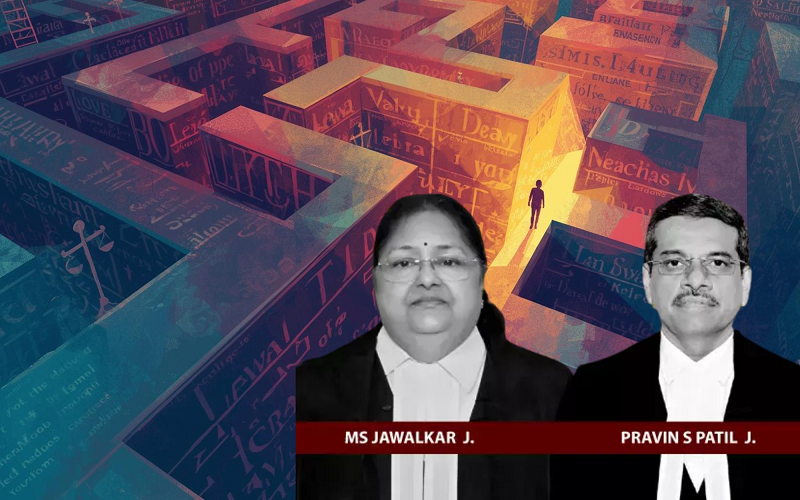A Detailed Analysis of Family Pension and Legal Marriage in Indian Jurisprudence
The Bombay High Court's judgment in the case of Laxmi v. State of Maharashtra serves as a significant judicial precedent in the realm of family pension claims and the legal standing of marriages under Hindu law. This case, decided by the Nagpur Bench, delves into the complexities of marital legitimacy and entitlement to pensionary benefits, providing clarity on the application of both the Hindu Marriage Act, 1955 and the Maharashtra Civil Services (Pension) Rules, 1982.
Background of the Case:
The petitioner, Laxmi, approached the Bombay High Court to challenge the decision of the Maharashtra Administrative Tribunal, which had dismissed her application for family pension and other retirement benefits following her husband's demise. Her claim was contested by Pushpa, who asserted herself as the second wife and entitled to the same benefits. The crux of the dispute revolved around the legal recognition of Laxmi as the first wife versus Pushpa’s claim stemming from her marriage registration and nomination forms.
Legal Framework:
The judgment primarily hinges on two critical legal provisions:
- 1. Hindu Marriage Act, 1955: Section 5(i) explicitly prohibits a second marriage during the subsistence of a first marriage, thereby rendering any subsequent marriage void in the eyes of the law unless the first marriage is legally dissolved.
- 2. Maharashtra Civil Services (Pension) Rules, 1982: Rule 116 mandates that pensionary benefits be conferred upon the legally wedded wife, reinforcing the necessity for a valid marriage under the Hindu Marriage Act.
Court’s Observations:
The High Court meticulously examined affidavits and documents presented by both parties. It highlighted that although Pushpa claimed to be the deceased’s wife based on certain documents, the legal status of her marriage was invalid due to the continued existence of Laxmi’s marriage with the deceased. The Court underscored that without a legal dissolution of the first marriage, the second marriage could not be recognized for pensionary claims.
Judicial Precedents and Analysis:
The judgment referenced several precedents including Kamalbai Nipanikar, which affirmed that pensionary benefits could only be claimed by a legally wedded wife. The Court also dismissed the applicability of other cited cases by the respondent that dealt with maintenance and succession, noting that these did not bear directly on the issue of pensionary entitlements under civil service rules.
Impact and Implications:
This judgment serves as a critical guidepost for interpreting marital legitimacy and entitlements in pension cases. It reinforces the importance of adhering to statutory provisions governing marriage and succession, highlighting the legal requirement for a decree of divorce for the dissolution of marriage. The ruling clarifies that pensionary rights are strictly tied to legal marriage, thereby protecting the rights of first wives under the existing legal framework.
Conclusion:
The case of Laxmi v. State of Maharashtra underscores the judiciary's role in upholding the sanctity of legal marriage and ensuring rightful claims to pensionary benefits. It illustrates the importance of legal documentation and procedural adherence in family law disputes. As the legal landscape continues to evolve, this judgment provides essential clarity and reinforces the principles governing marital entitlements in India.
For legal practitioners and individuals alike, understanding the nuances of this case is crucial for navigating similar disputes and ensuring compliance with the law. This judgment not only resolves the immediate dispute but also sets a precedent for future cases involving pension claims and marital legitimacy.
Laxmi v. State of Maharashtra, (Bombay)(Nagpur Bench)(DB) : Law Finder Doc Id # 2753097




